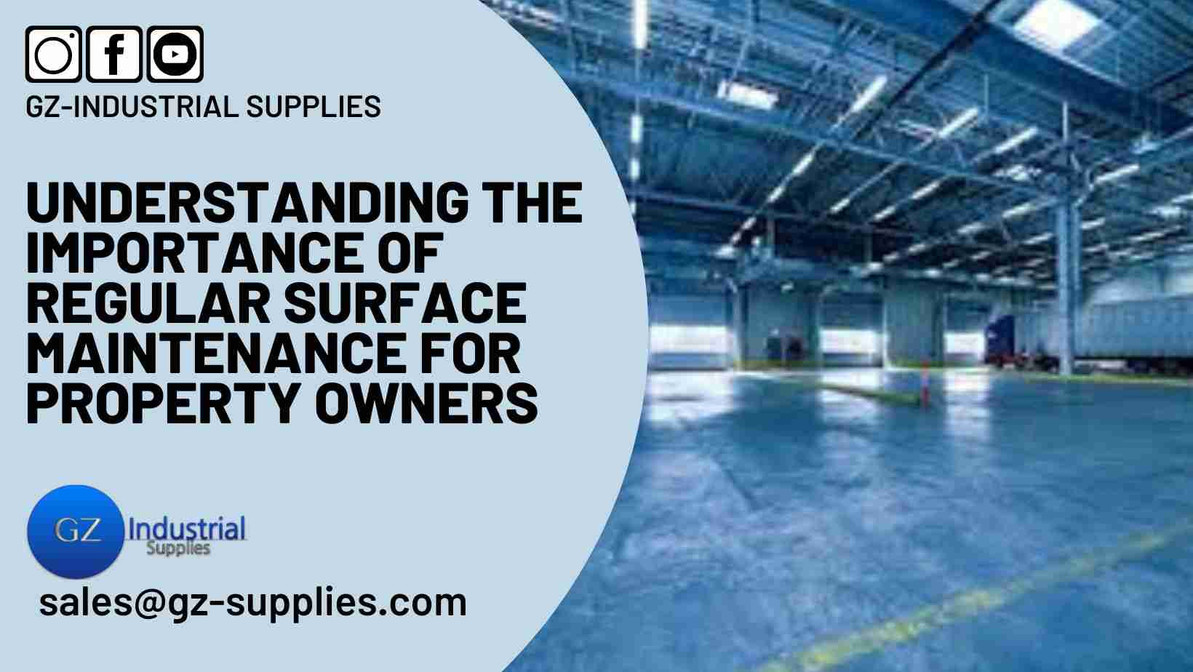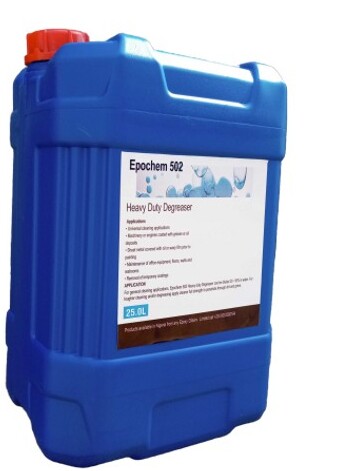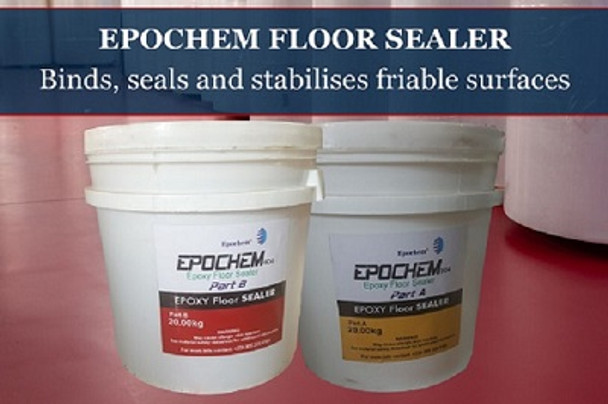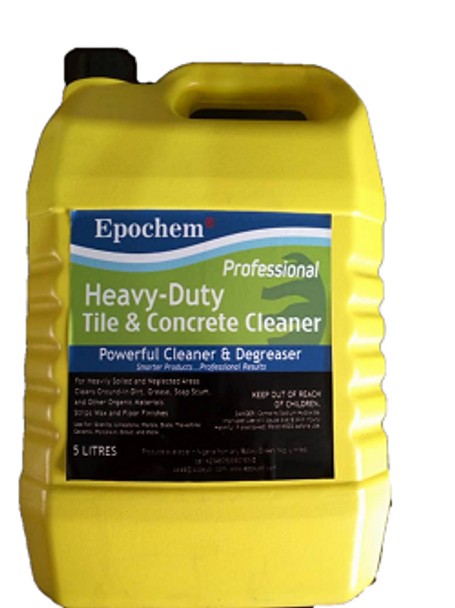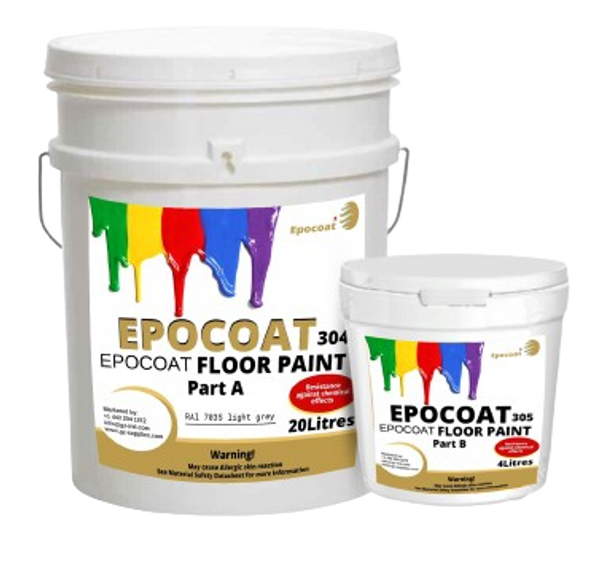Understanding the Importance of Regular Surface Maintenance for Property Owners
- Preserves Property Value: Regular maintenance helps maintain or even increase the property's market value by keeping surfaces in excellent condition.
- Prevents Costly Repairs: Addressing minor issues promptly can prevent them from escalating into major, more expensive problems in the future.
- Extends Lifespan of Materials: Proper care and routine maintenance extend the durability of flooring, walls, roofs, and other structural components.
- Enhances Aesthetic Appeal: Well-maintained surfaces improve the overall look of the property, making it more inviting and pleasant for occupants and visitors.
- Improves Safety: Regular maintenance reduces hazards related to worn or damaged surfaces, enhancing safety for everyone using the property.
- Ensures Compliance: Keeping up with surface maintenance helps ensure compliance with local building codes and safety regulations, avoiding potential legal issues.
 Epochem 502 heavy duty degreaser and industrial cleaner, 20Liters
Epochem 502 heavy duty degreaser and industrial cleaner, 20Liters
Introduction
In property management, regular surface maintenance is not just about keeping a property looking its best; it's about safeguarding the investment and ensuring the functionality and safety of the property. Whether it's a residential home, a commercial building, or an industrial facility, the integrity of surfaces plays a crucial role in overall property valuation.
Regular surface maintenance is crucial for property owners, primarily because it significantly extends the lifespan of the property's components. By routinely caring for surfaces such as floors, walls, and exterior facades, property owners can prevent the natural deterioration that occurs due to wear and exposure to environmental elements. This maintenance not only helps in avoiding costly repairs or replacements down the line but also ensures that the property remains functional and safe for use. Regular upkeep, such as sealing wood surfaces, repainting weathered exteriors, and addressing minor damages before they escalate, maintains the structural integrity and aesthetic value of the property, thereby preserving or even increasing its market value over time. This proactive approach to property management fosters a more stable and appealing environment for occupants and visitors alike.
This guide aims to provide property owners with essential insights into the importance of regular surface maintenance. By understanding the benefits and implementing a structured approach to maintenance, property owners can enhance their property's value, extend its lifespan, and avoid costly repairs down the line.
The Basics of Surface Maintenance
Surface maintenance encompasses all activities aimed at keeping various property surfaces in optimal condition. This includes routine cleaning, damage repair, protective treatments, and aesthetic enhancements to surfaces like floors, walls, ceilings, and external facades.
Key Components:
- Cleaning: Regular cleaning removes dirt and debris that can cause wear and tear over time.
- Repairing: Addressing minor damages promptly to prevent them from escalating into major issues.
- Treating: Applying treatments such as sealants or paints to protect surfaces from environmental damage.
- Protecting: Implementing protective measures to extend the durability and appearance of surfaces.
 EPOCHEM 304/404 Epoxy Floor Sealers
EPOCHEM 304/404 Epoxy Floor Sealers
Benefits of Regular Maintenance
1. Extending Lifespan:
Regular maintenance not only keeps surfaces looking new but also extends their functional life. For instance, properly maintained wooden floors can last decades longer than neglected ones, saving property owners from early replacement costs.
2. Enhancing Appearance:
Well-maintained surfaces significantly boost the aesthetic appeal of a property. This is particularly important in commercial spaces, where first impressions can influence customer perception and engagement.
3. Preventing Costly Repairs:
Routine checks and minor repairs can prevent small issues from becoming extensive, expensive problems. For example, fixing a small leak promptly can avoid water damage that might otherwise require a complete overhaul of the affected area.
4. Safety Improvements:
Regular maintenance also enhances safety by reducing hazards associated with worn-out or damaged surfaces, such as tripping on uneven flooring or injuries from broken tiles.
 Epochem heavy duty Tile and Concrete cleaner 5 liters
Epochem heavy duty Tile and Concrete cleaner 5 liters
Types of Surfaces and Specific Maintenance Needs
1. Flooring:
Different types of flooring require tailored maintenance strategies. Hardwood floors benefit from regular polishing and the occasional refinish to prevent scratches and wear. Tile floors should be cleaned with non-abrasive products to avoid scratching, while grout may need periodic sealing to prevent staining and moisture penetration. Carpets require vacuuming and periodic deep cleaning to remove embedded dirt and allergens.
2. Walls and Ceilings:
Maintenance for walls and ceilings depends largely on their materials. Painted surfaces should be cleaned gently and retouched as needed to cover up dings and marks. Wallpapered walls require careful cleaning with products designed not to damage the paper and adherence to repair any peeling sections.
3. Exterior Surfaces:
Exterior maintenance is critical due to exposure to harsh weather conditions. This includes regular cleaning, protective coatings like waterproofing for exposed surfaces, and immediate repairs of any damage that could lead to more severe problems, such as water ingress.
4. Specialty Surfaces:
Surfaces made from materials like glass, stainless steel, or specialty fabrics require specific care to maintain their appearance and integrity. For instance, glass surfaces should be cleaned with streak-free cleaning agents, stainless steel may require polishing to remove fingerprints, and fabrics might need professional cleaning services to avoid damage.
 DongCheng High Pressure Washer DQW5.5/7 PLUS
DongCheng High Pressure Washer DQW5.5/7 PLUS
Common Challenges in Surface Maintenance
1. Weather Effects:
The impact of weather can accelerate the deterioration of external surfaces. In regions with high humidity, for example, mold and mildew can develop, requiring more frequent cleaning and the use of mold-inhibiting products.
2. Wear and Tear:
Regular use of any space means that surfaces will face wear and tear. High-traffic areas, particularly floors and doorways, need robust maintenance plans to keep them in good condition.
3. Technological and Material Updates:
Keeping up with new materials and technologies is essential for effective maintenance. Newer materials might require different care techniques that property owners need to be aware of.
Best Practices for Surface Maintenance
1. Routine Check-ups and Cleaning: Implementing a regular cleaning and maintenance schedule helps ensure that no area of the property is neglected. Seasonal maintenance checks can address specific needs that arise from changes in weather.
2. Professional Help: While many routine maintenance tasks can be handled in-house, some situations call for professional assistance. Tasks like deep cleaning, major repairs, or installations should be handled by experts to ensure quality and safety.
3. Using the Right Tools and Supplies: Employing the correct tools and cleaning products is crucial to effective maintenance and avoiding damage. For instance, using a non-recommended cleaner on a specialty surface could cause irreversible harm.
Implementing a Maintenance Plan
Setting Up a Schedule: Creating a detailed maintenance schedule that includes daily, weekly, monthly, and annual tasks can help property owners manage their responsibilities effectively. This schedule should be adaptable to the specific needs of the property and its various surfaces.
Budgeting for Maintenance: Allocating funds for regular and unexpected maintenance needs is vital. This includes setting aside resources for both minor upkeep and major repairs or upgrades.
Record Keeping and Monitoring: Keeping detailed records of all maintenance activities helps in planning future maintenance, budgeting, and providing documentation in case of warranty claims or insurance issues.
Frequently Asked Questions
1. How often should I schedule professional deep cleaning for my carpets?
Professional deep cleaning for carpets is recommended at least once a year to remove deep-seated dirt, allergens, and stains that regular vacuuming cannot reach. However, in high-traffic areas or if you have pets and children, you might need to schedule professional cleaning more frequently, such as every 6 months.
2. What is the best way to prevent water damage on wooden outdoor furniture?
To prevent water damage on wooden outdoor furniture, apply a waterproof sealant at least once a year. Choose a sealant that offers UV protection to prevent fading from sunlight. Additionally, during heavy rainfalls or when not in use for extended periods, consider covering your furniture or storing it in a dry place.
3. Can I use the same cleaner for stainless steel appliances and granite countertops?
It is not advisable to use the same cleaner for stainless steel appliances and granite countertops. Granite countertops require a specific type of cleaner that is pH balanced to avoid etching or damaging the stone surface. Conversely, stainless steel appliances often need a cleaner that can remove fingerprints and grease without leaving streaks or damaging the finish.
4. What should I do if I notice cracks in my building's exterior walls?
If you notice cracks in your building's exterior walls, it is important to assess the severity and cause of the cracks. Small, hairline cracks might be due to natural settling and can often be filled with caulk. However, larger cracks could indicate structural issues and should be inspected by a professional to determine the underlying cause and appropriate repair method.
5. How can I tell if my property’s HVAC system needs maintenance or replacement?
Signs that your HVAC system may need maintenance or replacement include unusual noises, frequent breakdowns, inadequate heating or cooling, increased energy bills, and poor air quality. If your system is more than 10-15 years old and these problems are persistent, it might be more cost-effective to consider replacement rather than continuous repairs.
Related Article:
Preventive vs. Reactive Surface Maintenance: Which Approach Is Right for You?
Conclusion
Effective surface maintenance is a key component of property management that extends the lifespan of property assets, enhances aesthetic appeal, and ensures a safe environment for occupants. By understanding the specific needs of different surface types and implementing a structured maintenance plan, property owners can protect their investment and maintain their property’s value.
For more information and resources on maintaining your property effectively, visit GZ Industrial Supplies where you can find a range of products and services designed to assist with comprehensive property maintenance.
Recent Posts
-
How to Choose the Right Industrial Cleaning Service Provider
Key takeawayThoroughly Assess Your Needs and Providers: Understand your specific industrial cle …Jul 26, 2024 -
Floor Paint Maintenance: How to Keep Your Floors Looking Their Best
Maintaining your painted floors is essential for preserving their beauty and extending their lifespa …Jul 25, 2024 -
The Best Floor Paint for Different Types of Flooring
When it comes to revitalizing your home's flooring, choosing the right paint can make all the d …Jul 19, 2024

